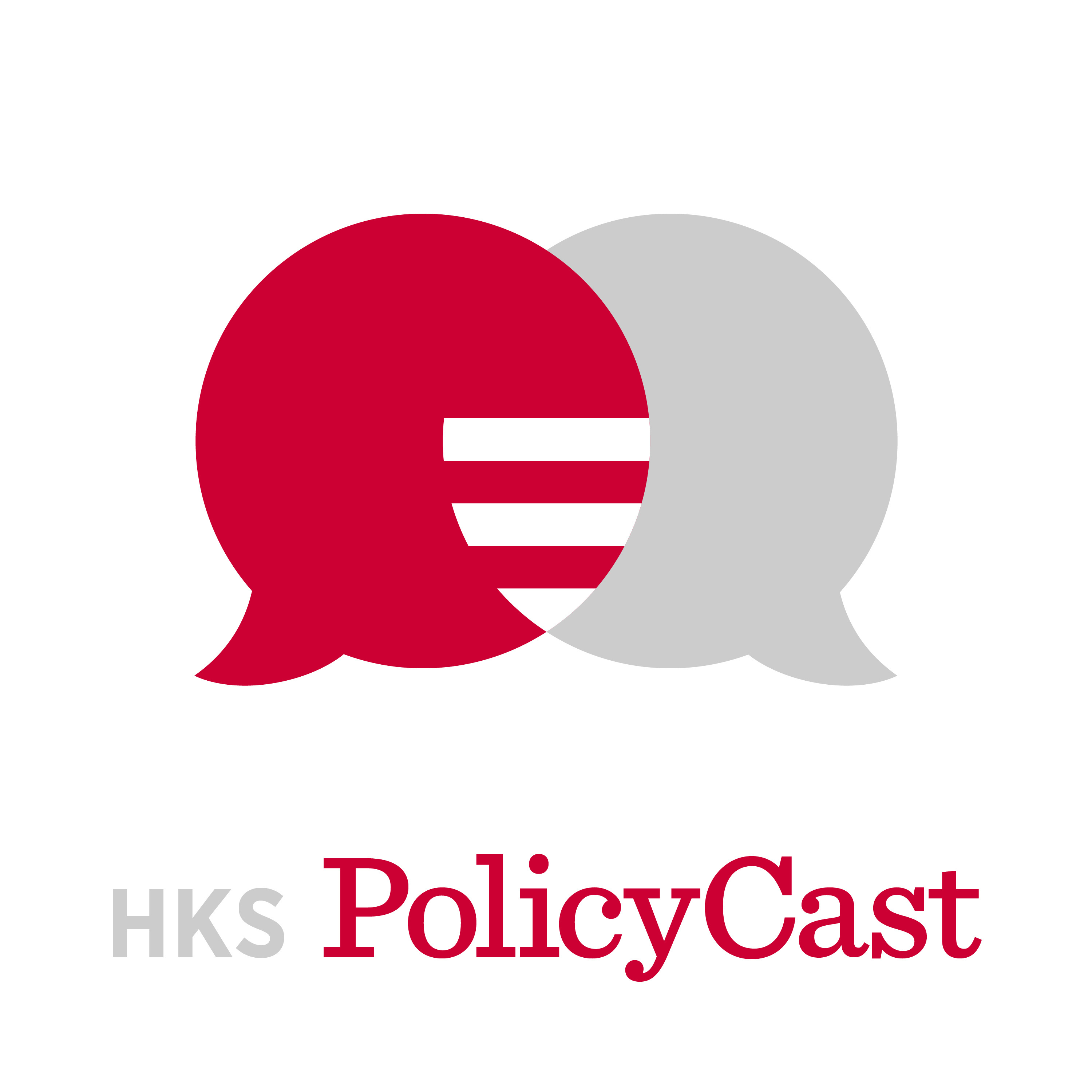

PolicyCast
Harvard Kennedy School
PolicyCast explores research-based policy solutions to the big problems and issues we're facing in our society and our world. Host Ralph Ranalli talks with leading Harvard University academics and researchers, visiting scholars, dignitaries, and world leaders. PolicyCast is produced at the Kennedy School of Government at Harvard University.
Episodes
Mentioned books

Apr 18, 2018 • 41min
196 Europe's Evolving Stance on Russia
Cathryn Clüver-Ashbrook, executive director of both the Future of Diplomacy Project and the Project on Trans-Atlantic and European Relations out of the Kennedy School’s Belfer Center, describes the changing nature of relations between Europe and Russia, providing historical context, examining contemporary factors such as the Syrian civil war and Russian election meddling, and describing how the new Project on Trans-Atlantic and European Relations, chaired by HKS Professor Nicholas Burns, seeks to find solutions to the emerging challenges.

Apr 11, 2018 • 10min
195 Lin-Manuel Miranda: The Megaphone from the Diaspora
Hamilton Creator Lin-Manuel Miranda, on campus to kick off the America Adelante Conference hosted by the Center for Public Leadership, discusses his advocacy for Puerto Rico in the aftermath of Hurricane Maria, how he thinks about using his celebrity to effect change, and the falling barriers to minority representation in film and television.

Apr 4, 2018 • 21min
194 Piketty’s Prescription for Wealth Inequality
Economist Thomas Piketty details the policies he believes will be key to overcoming the wealth inequality illustrated in his seminal 2013 book, “Capital in the Twenty-First Century.” He also discusses the 2018 World Inequality Report, which builds on and updates the data sets first featured in “Capital,” except on a global scale thanks to the involvement of more than one hundred economists around the world. Piketty was on campus to deliver the Wiener Center’s inaugural Stone Lecture on Economic Inequality.

Mar 28, 2018 • 22min
193 Data Dystopia: Online Ads and Elections
Shorenstein Fellow Dipayan Ghosh joins us again for part two of our extended interview on data privacy, digital advertising, and their effect on our democracies. In this episode, Ghosh moves beyond the Cambridge Analytica scandal to focus on publically available, data-driven advertising tools and how they can be leveraged by politicians and nefarious agents alike to manipulate voters.

Mar 28, 2018 • 29min
192 Data Dystopia: Privacy and Regulation
As the Cambridge Analytica scandal continues to unfold, Joan Shorenstein Fellow Dipayan Ghosh, who recently left Facebook's Privacy and Public Policy team, joins us for a double-header on data privacy, digital advertising, and their effect on our democracies. In this episode, Ghosh walks through the myriad ways companies like Facebook and Google collect and leverage data to target users, increase engagement, and ultimately sell advertising. He then discusses the challenges inherent in any effort to regulate the industry.

Mar 21, 2018 • 27min
191 The Equal Rights Amendment
Professor Jane Mansbridge explains why efforts to pass an Equal Rights Amendment to the U.S. Constitution have failed in the past, but could now have a real shot at ratification.

Mar 14, 2018 • 18min
190 How Cities are Thriving in a Populist Era
Bruce Katz explains what makes cities different from state and national governments, and why that difference has allowed them to thrive while populism and partisanship grip state and national governments. Using Boston, Pittsburgh, Indianapolis, and Copenhagen as examples, Katz illustrates how the unique network effects of cities lead to innovative solutions to public problems. Katz was on campus as a guest of both the Center for Public Leadership and Ash Center.

Mar 7, 2018 • 24min
189 Bringing Economics to the People
Tufts Professor Michael Klein explains how he’s using http://www.econofact.org to better inform the broader public about economics. The non-partisan publication features easily-digestible briefs on topical economic issues authored by a network of economists around the country, including HKS Professors David Deming, Jeffrey Frankel, and Mark Shepard.

Feb 28, 2018 • 25min
188 New Orleans' Confederate Monuments
Mayor Mitch Landrieu of New Orleans, a Hauser Visiting Leader at the Center for Public Leadership, describes the years-long process involved with removing four confederate monuments in New Orleans, including statues of Robert E. Lee and Jefferson Davis.

Feb 21, 2018 • 23min
187 Reinventing City Government
HKS Prof. Stephen Goldsmith says technology is enabling cities to radically change the way they operate, and both city workers and citizens stand to benefit. He describes how governments will shed the strict bureaucracies of the 20th century in favor of a distributed model where the city acts as a platform and service providers can be evaluated by outcomes. Goldsmith is the director of the Innovations in American Government Program out of the Kennedy School’s Ash Center, and recently co-authored, alongside Neil Kleiman, the book “A New City O/S - The Power of Open, Collaborative, and Distributed Governance.”


